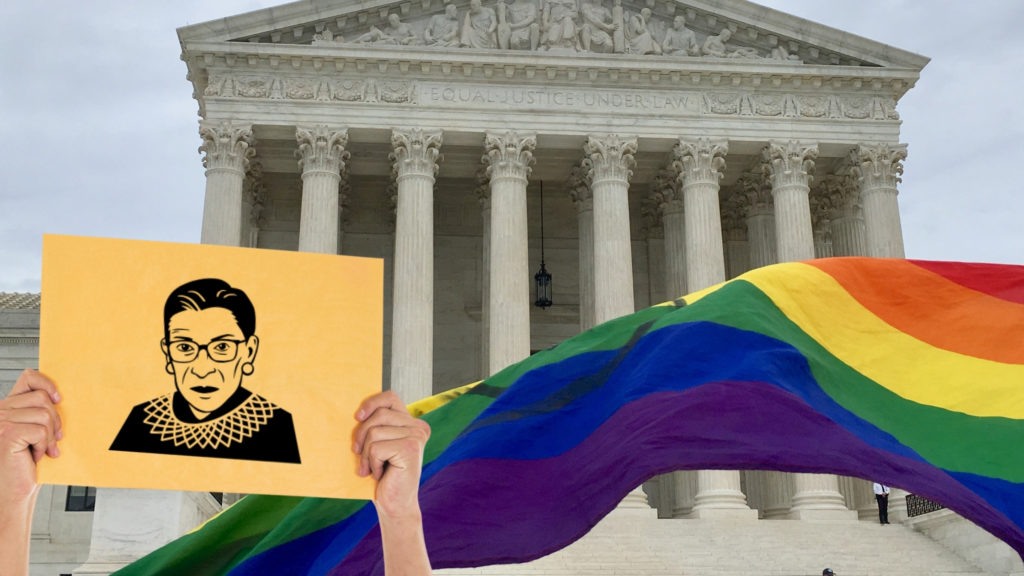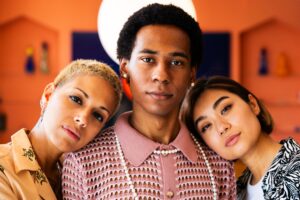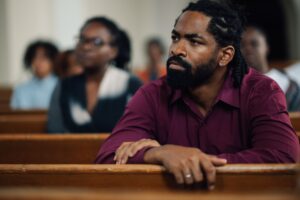During her 27-year term on the Supreme Court, Ruth Bader Ginsburg proved a powerful ally to the LGBTQ community time and again.
From her early decisions that struck down discrimination based on sexual orientation, to the time she compared the Defense of Marriage Act’s version of same-sex marriage to skim milk, Ginsburg was part of the majority for every single decision that advanced LGBTQ rights.
In honor of this trailblazer, let’s look at five ways her work made life better for LGBTQ Americans.
1. She Helped Pass Marriage Equality

Marriage equality in the United States was the result of decades of advocacy and dozens of lawsuits. From state-level bans in the 1970s to the Defense of Marriage Act (DOMA) and finishing with civil unions, same-sex couples fought for years to have their relationships recognized federally.
Often the Supreme Court refused to hear cases brought by same-sex couples “for want of a substantial federal question.” However, this changed when voters (rather than judges or lawmakers) in three states approved approved Constitutional amendments permitting same-sex marriage in 2012.
Ginsburg was a vocal ally in these cases. The most notable were:
- Windsor v. United States (2013), which struck down a law preventing same-sex couples from receiving the same federal benefits as heterosexual couples.
- Hollingsworth v. Perry (2013), which restored marriage equality to California after Proposition 8.
- Obergefell v. Hodges (2015), which struck down state bans on same-sex marriage and extended full marriage equality throughout the country.
2. She Granted Workplace Protections For LGBTQ People
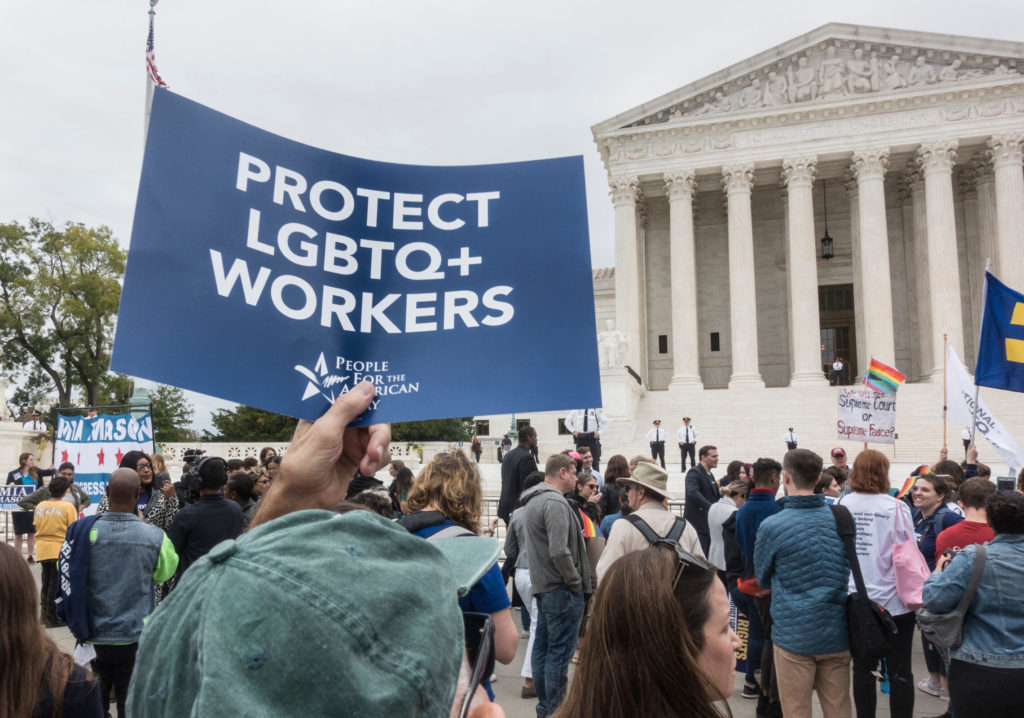
June 2020’s decision of Bostock v. Clayton County was one of Ginsburg’s final rulings. The case involved a gay employee who was fired after mentioning his gay softball league. The plaintiff sued his employer with the goal of having sexual orientation and gender identity recognized as protected classes the same way race and disability are.
The ruling stated that anti-LGBTQ discrimination is a form of sex discrimination. That makes it illegal under Title VII of the Civil Rights Act. The ruling grants protections to LGBTQ people wherever there are laws against sex discrimination, including employment, housing, health care and education.
3. She Struck Down Anti-Gay Amendments
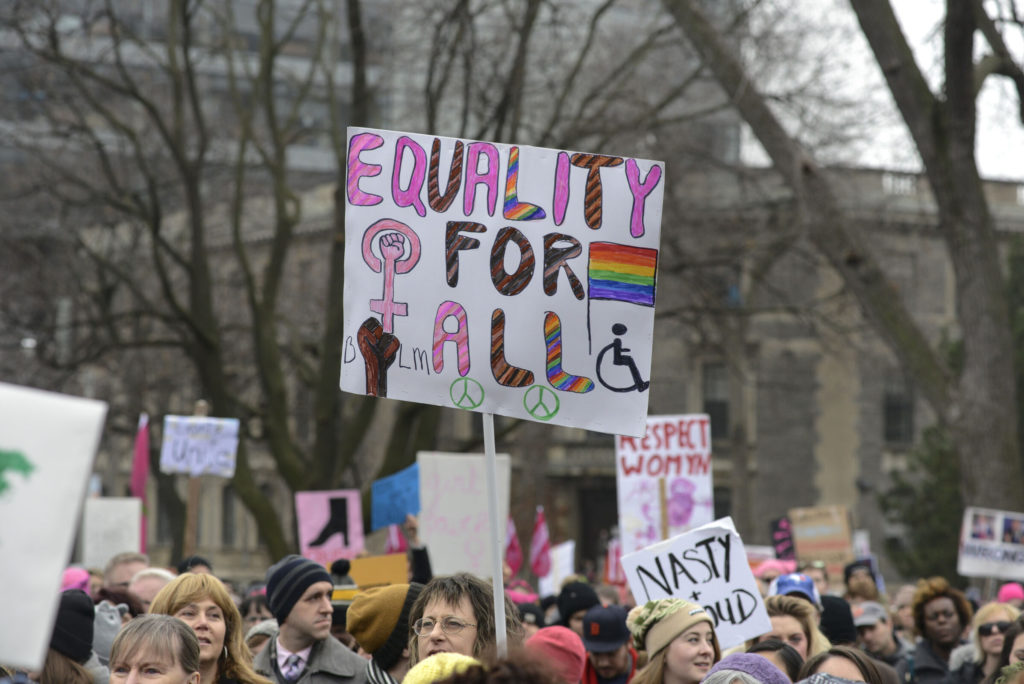
In 1996, just three years after her appointment to the Supreme Court, Ginsburg established herself as a defender of LGBTQ rights.
At that time, she joined the Romer v. Evans ruling that challenged the legality of Colorado’s Amendment 2. The amendment, passed by Colorado voters four years earlier, would have prohibited the state from enacting anti-discrimination protections for gays, lesbians and bisexuals. In short, homosexuals and bisexuals wouldn’t have had any protection against discrimination.
Not long after, the amendment was challenged and a Colorado state trial court issued a permanent injunction. This prevented Amendment 2 from being enforced until a ruling on it’s legality could be made. The Colorado Supreme Court agreed with the lower court and so the case went to the Supreme Court.
The Supreme Court overturned the lower courts’ rulings, but more than that, it set the stage for future rulings in favor of LGBTQ rights.
4. She Ruled Against Anti-Sodomy Laws

Seven years after the Romer ruling, Ginsburg again proved her commitment to defending LGBTQ rights when she joined the majority ruling on Lawrence v. Texas. In this 2003 case, two men were arrested for engaging in a private, consensual sex act. The men were apprehended after police entered their apartment on a suspected weapons disturbance.
The case questioned whether the government can intervene in matters of private, consensual activity between same-sex partners. Lawrence v. Texas wasn’t an isolated case. Rather, it represented the end to decades of debate about how much control the government has over people’s private lives.
Prior to 1960, sodomy laws prohibited any sexual activity not for procreation. They were applied to LGBTQ and straight couples alike.
As the 60s progressed, the laws were increasingly used to discriminate against gay men. In some states, sodomy laws were rewritten so they’d only apply to gay men. In others, courts ruled that sodomy laws could not be applied to straight people. For decades, these laws were used to discriminate against LGBTQ people.
Not only did the laws block LGBTQ people from adopting or fostering children, but they also prevented LGBTQ parents from maintaining custody of their own children.
In addition, sodomy laws were used to justify firing LGBTQ employees, as well as denying LGBTQ applicants jobs for which they were qualified. This application was upheld in the 1986 Bowers v. Hardwick Supreme Court ruling that found discriminating against LGBTQ people constitutional because they belong to a class “defined” by a behavior (sodomy) that could be considered a crime.
When the Supreme Court struck down Lawrence v. Texas, it simultaneously overturned sodomy bans in 13 states. But more than that, the ruling meant the criminalization of homosexuality was unconstitutional.
5. She Officiated Same-Sex Weddings

Not only was Ginsburg a powerhouse on the bench, but she also took her advocacy work into the real world.
Just months after the 2013 Windsor v. United States ruling, Ginsburg started officiating same-sex marriages—a full two years before they were legal federally. She was the first Supreme Court justice to conduct a same-sex wedding when she married Kennedy Center president Michael Kaiser and economist John Roberts in 2013.

What To Do If You’re Struggling
If you, or someone you love, has turned to drugs and alcohol during these trying times, don’t worry, we’re here to help. At La Fuente Hollywood Treatment Center, we specialize in drug and alcohol addiction treatment for the LGBTQ community.
We’re one of the nation’s leading LGBTQ-specific drug treatment centers and we have over two decades of experience helping people overcome addiction so they can live happy, healthy, productive lives.
Contact us and let’s start your recovery process together.

